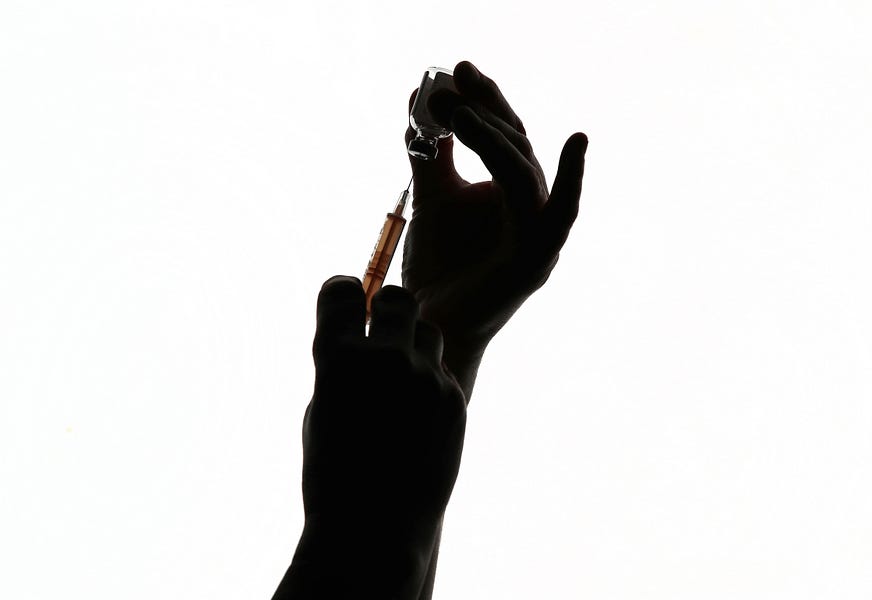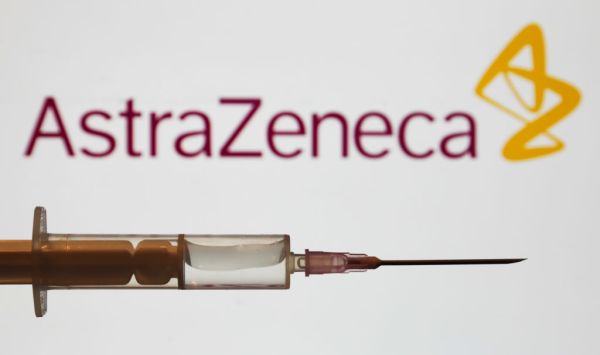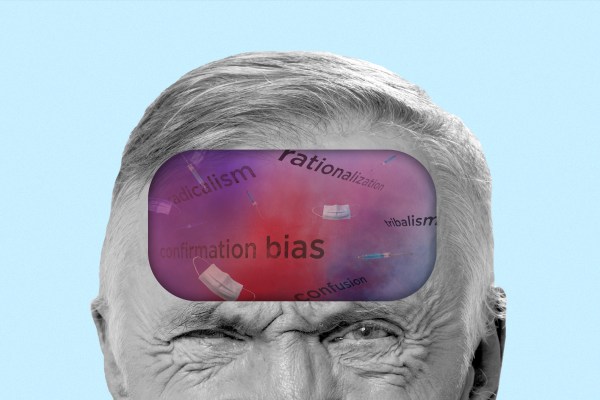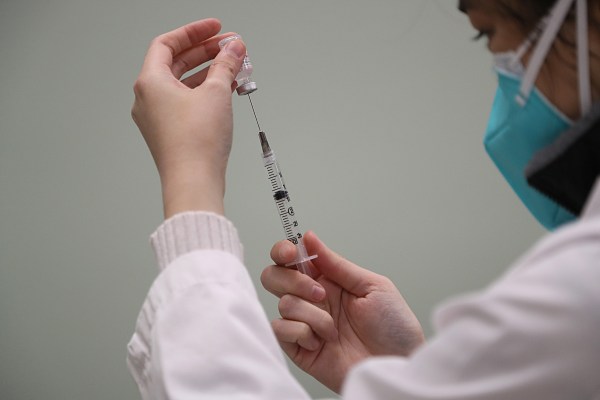In a viral tweet from last week, Dr. Peter McCullough, a Texas cardiologist and frequent purveyor of COVID-19 misinformation, claimed that there is a connection between the COVID-19 vaccine and hepatitis C:
McCullough’s claim leaves out the context that the study he cites is based on one patient. The study, which can be read here, acknowledges that it “cannot exclude a coincidental occurrence” of hepatitis C. And his claim that “reactivation syndromes suggest reverse transcription” is false.
The study examines “a case of a 82-year old patient with dementia who was admitted to a nursing home in the Netherlands. After vaccination with COVID-19 vaccination, physical examinations and lab tests were performed.” The results, per the study, indicated that the patient “had a reactivation of hepatitis C infection” after receiving the Pfizer/BioNTech vaccine.
The fact that the study is based on a single case is significant, as Robert Garry, a Tulane University virologist, explained to The Dispatch Fact Check via email.
“The case is simply that—a case. A single case,” he said. “It’s anecdotal. There is no epidemic of HCV [hepatitis C virus] reactivation after COVID-19 vaccination.”
In an email to The Dispatch Fact Check, Paul Offit, a pediatrician and virologist at the Children’s Hospital of Philadelphia, similarly pointed out that the study in question “is a coincidental not causal association.”
Garry further explained that: “Hepatitis C gets reactivated during cancer or immunosuppressive therapies. Being 82 years old is ‘immunosuppressive’ in its own right. Often HCV reactivates with no apparent trigger.”
“It’s no surprise that reactivation would be fatal in a 82-year-old person likely with other health issues,” he said. “The most likely explanation is that the hepatitis C would have reactivated in this individual with or without the COVID-19 vaccine.”
Garry also pointed out that McCullough’s claim that: “Serious viral reactivation syndromes suggest reverse transcription,” is false because “hepatitis C reactivation does not involve reverse transcription.” He added that “this person [McCullough] is not qualified to discuss virology.”
For some context on reverse transcriptase, Garry explained that it is “an enzyme first described for retroviruses, the family of viruses that includes HIV.” Reverse transcriptase, he added, “converts ribonucleic acid (RNA) to deoxyribonucleic acid (DNA). Retroviruses convert their RNA genomes into DNA as part of their replication cycle.”
Martha Sharan, a spokesperson for the the Centers for Disease Control and Prevention (CDC) also addressed the claim in an email to The Dispatch Fact Check.
“To date, CDC has detected no unusual or unexpected patterns of reactivation of hepatitis C infection after vaccination that would indicate COVID-19 vaccines are causing or contributing to this condition.” ”
McCullough did not respond to our request for comment.
If you have a claim you would like to see us fact check, please send us an email at factcheck@thedispatch.com. If you would like to suggest a correction to this piece or any other Dispatch article, please email corrections@thedispatch.com.









Please note that we at The Dispatch hold ourselves, our work, and our commenters to a higher standard than other places on the internet. We welcome comments that foster genuine debate or discussion—including comments critical of us or our work—but responses that include ad hominem attacks on fellow Dispatch members or are intended to stoke fear and anger may be moderated.
You are currently using a limited time guest pass and do not have access to commenting. Consider subscribing to join the conversation.
With your membership, you only have the ability to comment on The Morning Dispatch articles. Consider upgrading to join the conversation everywhere.